You can just use the laravel but you choose lumen simply because the app you're about to build only needs a minimal features but the problem is, the session has been disabled in lumen starting from version 5.2 onwards. Now here's how you can enable it again.
Step 1:
Create a folder/directory in lumen named config and create a php file inside it named session.php and put these codes in it.
<?php use Illuminate\Support\Str; return [ 'driver' => env('SESSION_DRIVER', 'file'), 'lifetime' => env('SESSION_LIFETIME', 120), 'expire_on_close' => false, 'encrypt' => false, 'files' => storage_path('framework/sessions'), 'connection' => env('SESSION_CONNECTION', null), 'table' => 'sessions', 'store' => env('SESSION_STORE', null), 'lottery' => [2, 100], 'cookie' => env( 'SESSION_COOKIE', Str::slug(env('APP_NAME', 'laravel'), '_').'_session' ), 'path' => '/', 'domain' => env('SESSION_DOMAIN', null), 'secure' => env('SESSION_SECURE_COOKIE'), 'http_only' => true, 'same_site' => 'lax', ];
Step 2:
Load the created file session in lumen by updating the file bootstrap/app.php, add this line of code next to CorsMiddleware.
$app->configure('session');
Bind the session manager
$app->bind(Illuminate\Session\SessionManager::class, function ($app) { return $app->make('session'); });
Add the start session middleware
$app->middleware([ 'Illuminate\Session\Middleware\StartSession' ]);

Step 3:
Create the folder that will be used as storage.
storage/framework/sessions

Step 4:
Last was to update the environment file (.env). Change the value of SESSION_DRIVER=file or add it if it doesn't exists.
Step 5: How to use it
From your controller just import it
use Illuminate\Http\Request;
And just call it in the method like this.
public function yourMethod(Request $request) { $session = $request->session(); $session->put('sample','hello'); echo $session->get('sample'); // return hello }
Hope that helps!


